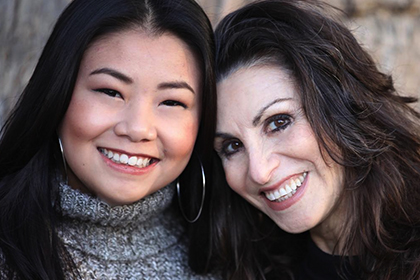Suzy Talks 2 Parents
Suzy Miller knows the job scene. As an award-winning choreographer, educator, videographer, and dance-mom, she’s dealt with every aspect of the dance profession. Here, she draws on real experience as she addresses questions brought up by parents.
Dear Suzy,
My 16 year-old daughter started dancing at 14 and is absolutely passionate about it. But she's frustrated because she started so much later than her friends. She feels like she'll never catch up with their technique, and is so hard on herself. She never feels good enough. She says she isn't even a "real" dancer. What's your perspective on this? - Laura P.
Suzy's Response: Click here to join today to access the Auditions Calendar and members-only content.
